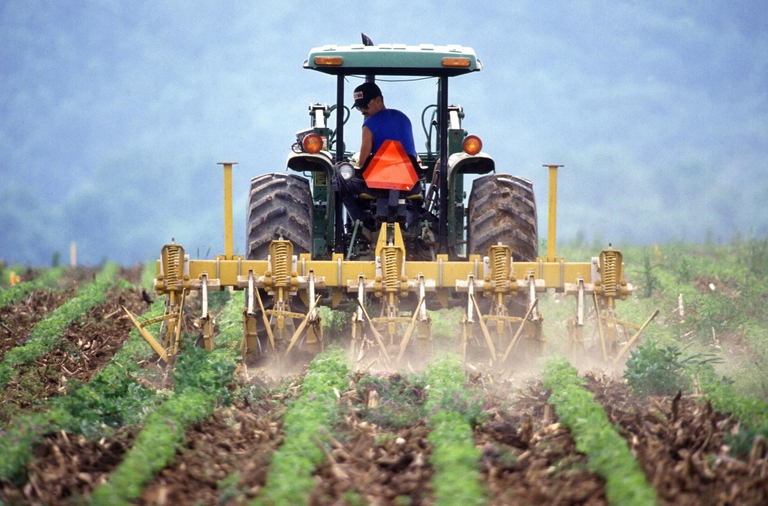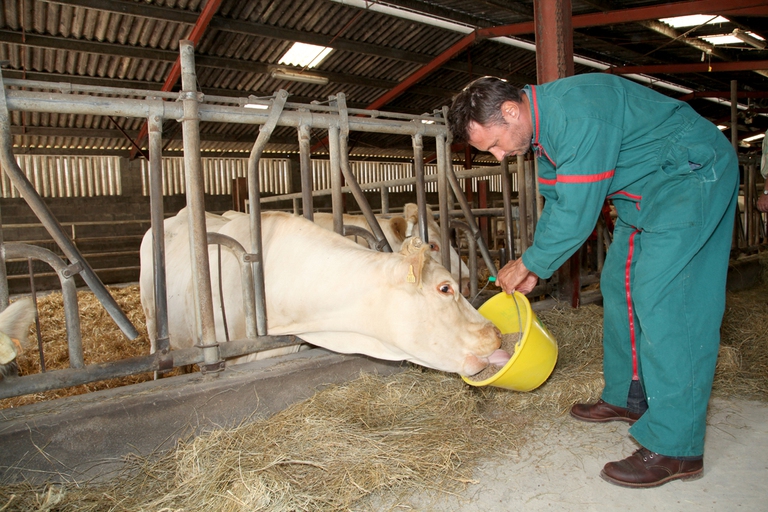
Factory farming conditions and antibiotic-resistant pathogens emerging as a result of them pose an existential threat to humans in the form of zoonotic diseases. Why it’s time to produce and consume food more thoughtfully.
To prevent the risks of glyphosate, a carcinogenic herbicide used in transgenic crops, the European Parliament opposes the import of three GM soybeans.
FG72, MON 87708 x MON 89788 and MON 87705 x MON 89788: these are the three import authorisations of glyphosate-resistant GM crops that the EU deputies of the executive body would like to oppose in order not to have carcinogenic substances in food and animal feed.
In March 2015, the herbicide glyphosate, the world’s most used weed killer, was rated by the Agency for Cancer Research, a body of the World Health Organisation, as “possibly carcinogenic to humans”.
“We cannot support the Commission’s current proposal to authorize three new genetically modified soybeans that are resistant to certain herbicides such as glyphosate. They could encourage the use of a herbicide that might cause cancer and have serious effects on human health”, the German S&D Group spokesperson on environment and health Matthias Groote declared.
The European Parliament also contests that GMOs are authorised without the approval of the Member States and points out that the European Commission itself is aware that, since the entry into force of the authorisation process, any decision on this matter has been taken without the acceptance of the majority of Member States.
“No more than 13 out of 28 EU Member States voted in favour of allowing the import of these GM soybeans into the EU, whilst an equal number has voted against”, president of Slow Food Germany Ursula Hudson said. “We urgently need a new authorisation mechanism as well as clear labelling for citizens to make informed choices”.
“The European Commission must respect the decision-making power of the Parliament”, highlighted Mute Schimpf of Friends of the Earth Europe, according to whom the current authorisation that devolves power to the executive body of the EU “is unfit for purpose”.
Franziska Achterberg of Greenpeace shares the same opinion. “The Parliament’s message is loud and clear: the Commission cannot carry on taking decisions on GM crops by itself, without the backing of EU governments, parliament and citizens”, she stated.
Siamo anche su WhatsApp. Segui il canale ufficiale LifeGate per restare aggiornata, aggiornato sulle ultime notizie e sulle nostre attività.
![]()
Quest'opera è distribuita con Licenza Creative Commons Attribuzione - Non commerciale - Non opere derivate 4.0 Internazionale.
Factory farming conditions and antibiotic-resistant pathogens emerging as a result of them pose an existential threat to humans in the form of zoonotic diseases. Why it’s time to produce and consume food more thoughtfully.
The world of cinema recognises the link between food choices and the climate crisis by offering vegan menus for awards season events, including at the most important of them all: the Oscars.
Let’s look at the reasons behind the growth of veganism in India, as a small yet vocal section of the population turns towards this diet and lifestyle in the largest milk producing country in the world.
by Jeffrey Y. Campbell, Manager of the Forest and Farm Facility at FAO In the Ecuadorian Amazon, Kichwa farmers grow dozens of products on tiny parcels of land. Their lands hum with biodiversity, yielding nutritious foods that have sustained families for generations. Wandering among fruit and nut trees and crops, these indigenous agroforesters fill their baskets
Mint has many health benefits, but in food it’s often accompanied by artificial green colourings. Instead, Galatea has created a green mint ice cream in a completely natural way.
We’re talking about Galatea, a company that produces semi-finished products for artisanal ice creams using high quality ingredients, natural colouring, excluding thickeners and hydrogenated fats, respecting the environment and supporting the less fortunate.
The mad rush to fake food, like fake meat made with genetically-modified soy, ignores the importance of the diversity of our foods and culinary cultures. It’s a recipe to accelerate the destruction of the Planet and our health.
Like with all foods, the quality of an ice cream can be discerned by reading its label. An expert explains how to do this, and tells us how their company steers clear of chemicals, using only natural ingredients to produce an excellent and “free” ice cream.
Quality ingredients, no artificial colouring and hydrogenated fats. These are the main features of a great ice cream. But what makes an ice cream parlour “good”, i.e. sustainable?









